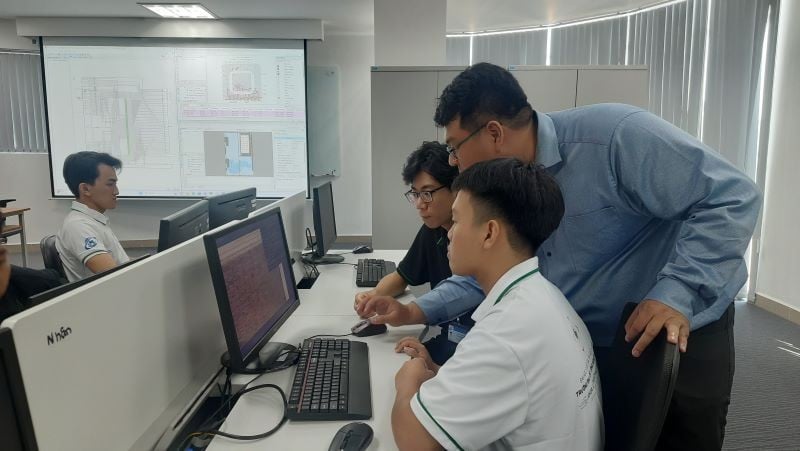
At the same time, the Resolution also emphasizes the importance of the linkage between the State - Schools - Enterprises, considering this as a pillar to ensure practicality, efficiency and sustainability in human resource training. The three-party cooperation mechanism not only helps to update training programs to suit social needs, but also promotes innovation, applied research and technology transfer.
Innovation in training programs
In the current period, when the 4.0 industrial revolution and digital transformation trend are taking place strongly globally, Vietnamese higher education is facing the need for comprehensive innovation to meet the demand for high-quality human resources for the digital economy .
In response to this requirement, the University of Information Technology, Ho Chi Minh City National University determined that innovating the training program content and developing the three-way linkage is a strategic direction, aiming to build an autonomous, creative and internationally integrated university model.
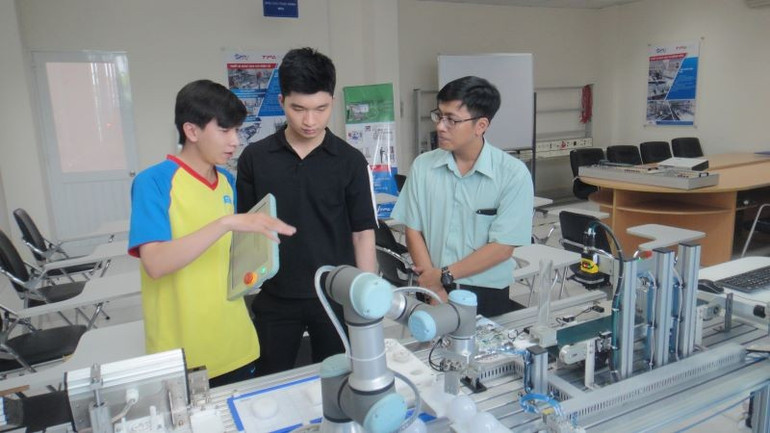
Accordingly, the University of Information Technology innovates its training program based on 5 core principles: Taking learners as the center; integrating knowledge - skills - practice - projects - enhancing connectivity; applying modern teaching methods; evaluating based on practical capacity and business feedback; aiming for a lifelong and happy learning environment.
In particular, with the principle of taking learners as the center, the school's training programs are designed based on output standards, ensuring that students achieve core competencies in expertise, skills and professional qualities.
Regarding the principle of integrating knowledge - skills - practice - projects - enhancing connectivity, the University of Information Technology enhances training programs such as college-to-university transfer, university-to-master transfer, and at the same time helps students approach reality through research, innovation and startup projects.
In addition, the school has built an interdisciplinary training program in cooperation between many different schools in Ho Chi Minh City National University such as Digital Agricultural Technology and Health Information Systems.
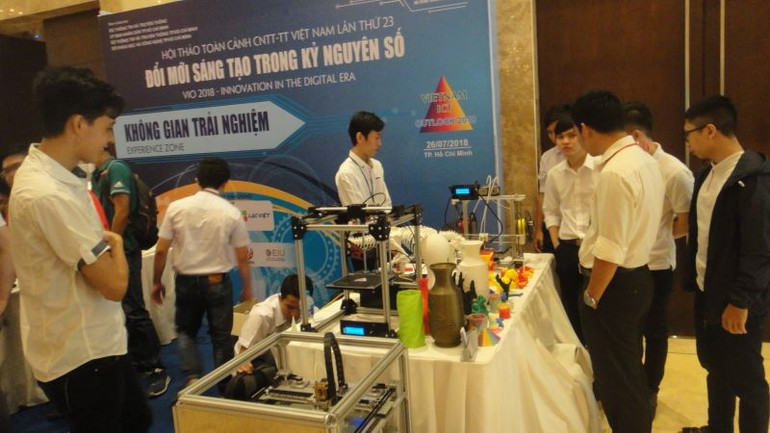
The University of Information Technology also promotes the application of modern teaching methods such as: project-based learning, blended learning, flipped learning, and massive open online courses (MOOCs) to diversify learning methods, increase initiative and self-learning capacity.
The school focuses on three key areas: AI, information security and microchip design, linked to Vietnam's high-tech industrial development strategy.
Dr. Lam Duc Khai, Head of Training Department, University of Information Technology.
Dr. Lam Duc Khai, Head of Training Department, University of Information Technology, said: The school focuses on three key areas: AI, information security and microchip design, linked to Vietnam's high-tech industry development strategy.
In the coming time, the school will continue to make efforts to promote its pioneering role in innovation of higher education, development of high-tech human resources, and creation of a cooperative ecosystem between the State - School - Enterprise, actively contributing to the sustainable development of the country.
Promoting trilateral cooperation
According to statistics, over the past 10 years, more than 200 universities and academies have signed cooperation agreements with businesses in training, internships and applied research.
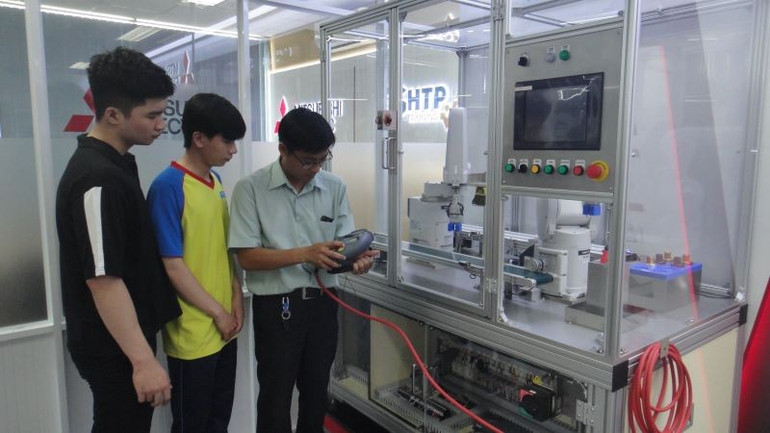
However, only about 15% of these programs have businesses participating in developing course content, so "the link between universities and businesses is still mainly formal, lacking long-term financial mechanisms and a legal framework for benefit sharing.
Experts say that schools are not only places to impart knowledge but also places to “create knowledge” and “connectors” between the State and businesses. To take on this role, universities must innovate their programs in an “open” direction, allowing businesses to participate in giving feedback, designing, and evaluating courses.
In addition, universities also need to establish business cooperation centers, technology transfer centers and joint laboratories (Co-Lab); increase the proportion of lecturers with business experience.
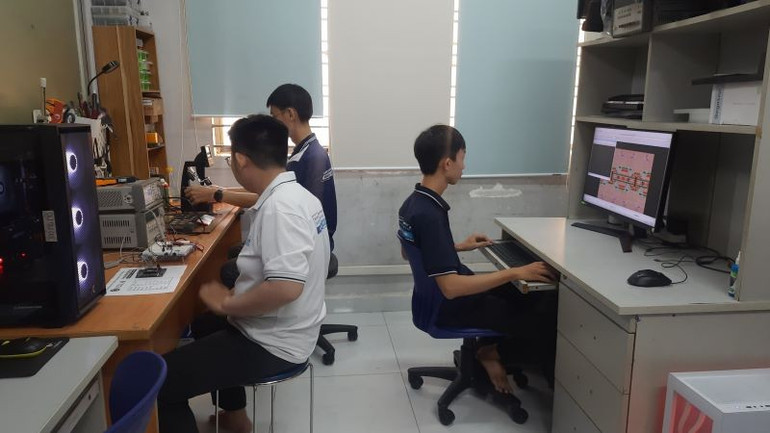
Making the Capstone Project a compulsory subject helps students directly solve practical problems. Thus, the school becomes a convergence point of research - training - transfer, maintaining its academic identity while meeting the needs of the labor market.
In the new era of development, characterized by digital transformation, globalization and the explosion of knowledge, the connection between the State - School - Enterprise becomes a strategic pillar for the development of human resources, science and technology.
Associate Professor, Dr. Tran Le Quan, Principal of University of Science.
According to Associate Professor, Dr. Tran Le Quan, Rector of the University of Science, Ho Chi Minh City National University, in the new era of development, characterized by digital transformation, globalization and the explosion of knowledge, the connection between the State - School - Enterprises becomes a strategic pillar for the development of human resources, science and technology.
Associate Professor, Dr. Tran Le Quan also said that university training programs in Vietnam are shifting from the traditional model to a competency-based - open - practice-integrated model, but still lack close coordination between relevant parties.
The current status of the three-party linkage is still scattered, lacking legal corridors and financial mechanisms; the rate of enterprises participating in program design and training orders is still low.
To maintain a "strong" three-way connection, Associate Professor, Dr. Tran Le Quan recommended that the State issue national framework regulations on State-School-Enterprise cooperation; and build a national interconnected database connecting human resource needs - training - research.
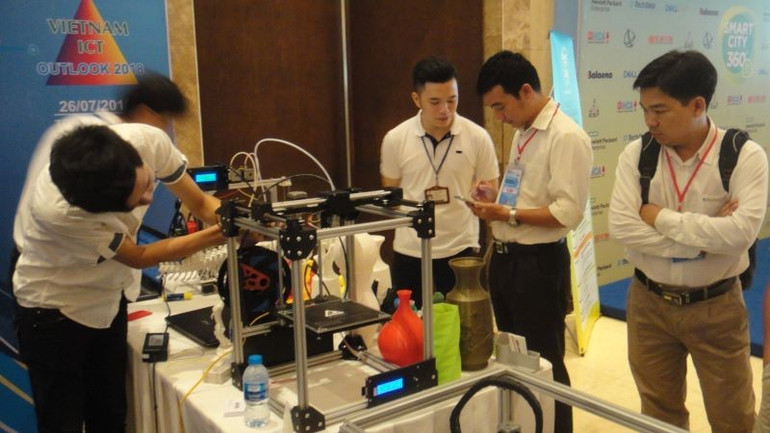
For universities, it is necessary to promote innovation in training programs according to competency standards and practical orientation. Develop a team of lecturers with practical experience and "Real Project" courses, promote the culture of student entrepreneurship and innovation.
As for businesses, they need to participate in co-teaching, co-guiding students and co-sponsoring applied courses. At the same time, they need to support research and development (R&D) and commercialize the results of scientific research.
Source: https://nhandan.vn/dai-hoc-quoc-gia-thanh-pho-ho-chi-minh-no-luc-doi-moi-chuong-trinh-nang-cao-chat-luong-dao-tao-post920028.html


![[Photo] Panorama of the Patriotic Emulation Congress of Nhan Dan Newspaper for the period 2025-2030](https://vphoto.vietnam.vn/thumb/1200x675/vietnam/resource/IMAGE/2025/11/04/1762252775462_ndo_br_dhthiduayeuncbaond-6125-jpg.webp)

![[Photo] Ca Mau "struggling" to cope with the highest tide of the year, forecast to exceed alert level 3](https://vphoto.vietnam.vn/thumb/1200x675/vietnam/resource/IMAGE/2025/11/04/1762235371445_ndo_br_trieu-cuong-2-6486-jpg.webp)

![[Photo] Ho Chi Minh City Youth Take Action for a Cleaner Environment](https://vphoto.vietnam.vn/thumb/1200x675/vietnam/resource/IMAGE/2025/11/04/1762233574890_550816358-1108586934787014-6430522970717297480-n-1-jpg.webp)
![[Photo] The road connecting Dong Nai with Ho Chi Minh City is still unfinished after 5 years of construction.](https://vphoto.vietnam.vn/thumb/1200x675/vietnam/resource/IMAGE/2025/11/04/1762241675985_ndo_br_dji-20251104104418-0635-d-resize-1295-jpg.webp)



![[INFOGRAPHIC] HP OmniBook 7 Aero 13”, smart security](https://vphoto.vietnam.vn/thumb/402x226/vietnam/resource/IMAGE/2025/11/04/1762263280437_info-hp-02-jpg.webp)








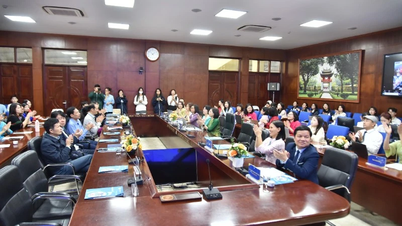
![[Video] Ministry of Education and Training announces the 2026 university and college enrollment plan](https://vphoto.vietnam.vn/thumb/402x226/vietnam/resource/IMAGE/2025/11/04/1762270484541_dung00-18-42-03still007-jpg.webp)

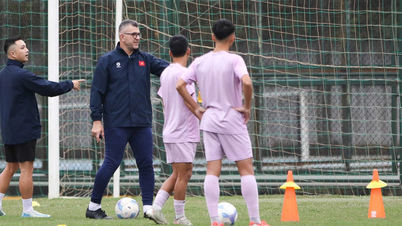
![[Photo] Prime Minister Pham Minh Chinh chairs the 20th meeting of the National Steering Committee on combating illegal fishing.](https://vphoto.vietnam.vn/thumb/402x226/vietnam/resource/IMAGE/2025/11/04/1762267178314_dsc-0115-jpg.webp)

























































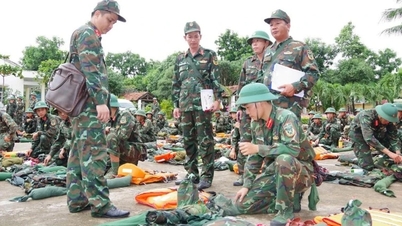














Comment (0)